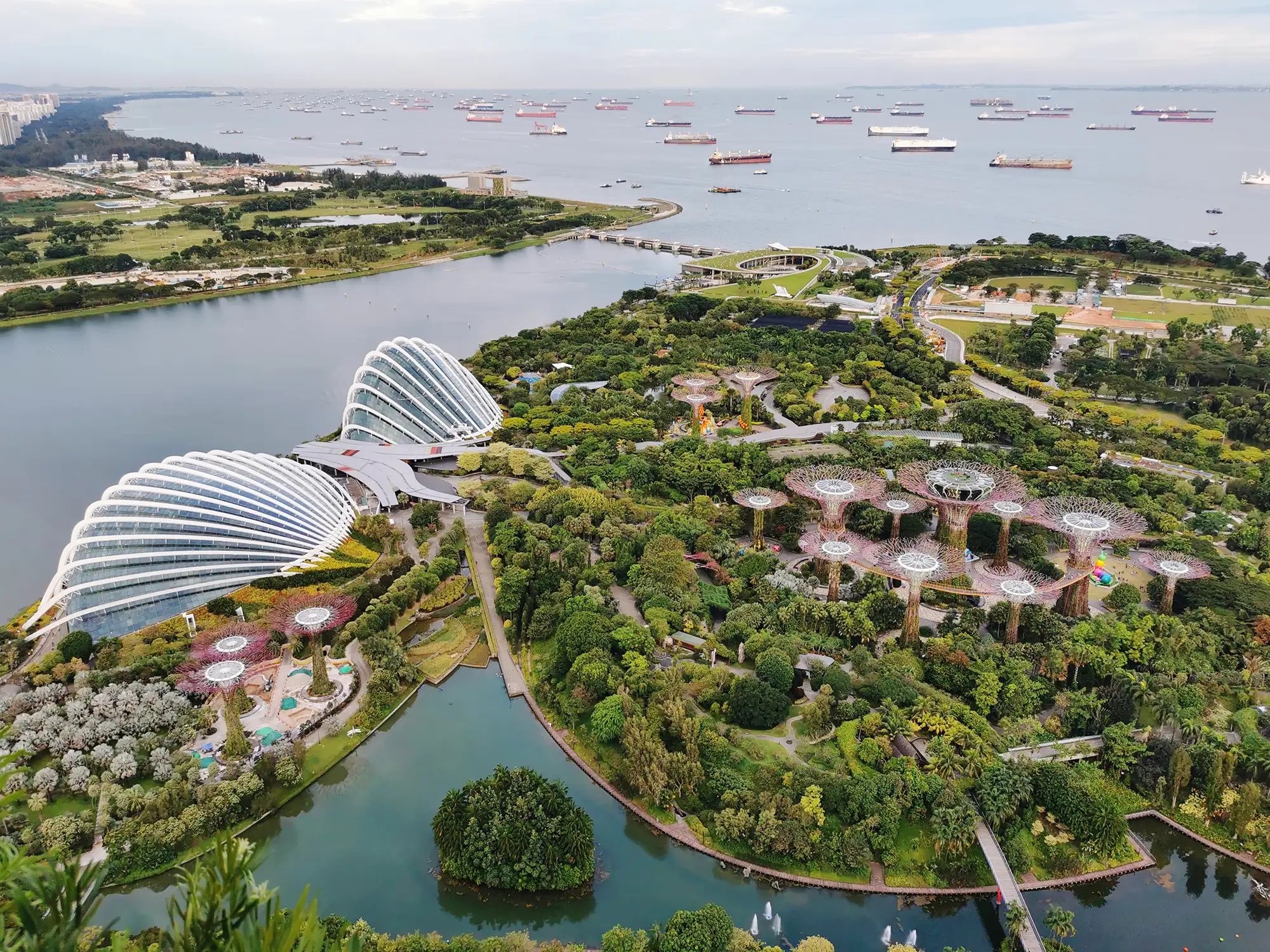Unlocking M&A Potential in ASEAN Part 2: Getting Ahead of the Growth Curve
By Rob Kerr, Associate Partner, ASEAN at Global PMI Partners
This article is the second in a series exploring the promising landscape of mergers and acquisitions (M&A) within the Association of Southeast Asian Nations (ASEAN). You can find the first article here.
The ASEAN region comprises 10 countries and an estimated 690 million people as of February 2024, totalling 8.5% of the global population.
The series highlights how strategic M&A activities can enable businesses to capitalise on synergies, consolidate and expand their market presence and harness the collective potential of ASEAN’s burgeoning economies.
Our focus in Part 2 is the rapidly growing nature of the region, and how to get ahead of the growth curve.
We will particularly explore:
- How ASEAN is developing
- Opportunities from rapid economic growth
- The benefits of a digital first approach
- How increasing affluence has impacted consumer preferences

How ASEAN is developing
In recent years ASEAN has experienced significant development, transforming into an economic hub with great potential. According to S&P Global, total nominal GDP of the ten ASEAN nations amounted to USD 3.6 trillion in 2022, more than doubling the 2009 figure of USD 1.6 trillion. *
By 2030, ASEAN’s economy is predicted to eclipse that of Japan and become the world’s 4th largest single market after the EU, US and China, making opportunities today prescient. **
The growth the region has seen – and the building of a platform for its continuation – stems from regional cooperation and trade liberalisation through policies promoting economic integration within the bloc. Signing of the ASEAN Free Trade Area (AFTA) in 1992 has led to various agreements within the region, including the ASEAN Framework Agreement on Services (AFAS), promoting liberalisation in the services sector. Since its signing in 1995, AFAS has continued to undergo revisions and updates to deepen the integration of services in the region. This has resulted in a welcoming environment to attract foreign direct investment (FDI).
Societal changes have also led to development. Key to this has been the increasing urbanisation of populations, development of education and skills, and adoption of global technological advances.
A combination of these factors has facilitated a growing middle class who are contributing to the region’s continued economic progress.
Vietnam, as an example, has witnessed elements of reverse brain drain with skilled professionals returning from overseas due to the country’s economic growth and emerging opportunities. Equally, an increasing number of Vietnamese international students are choosing to live and work in their home country after graduation. The ASEAN region as a whole has 350,000 students studying abroad in 2022, making it the third largest region globally for outbound student mobility after China and India.***
Opportunities from rapid economic growth
The rapid economic growth the region has been experiencing presents opportunities for businesses to capture market share and expand their operations through consolidation.
The increasing consumer base, and growing middle class, in ASEAN countries has led to increased consumption and demand for a wide range of products and services, making the region an attractive target for companies seeking to expand their customer base.
Opportunities are widespread, with sectors such as manufacturing, education, healthcare, and renewable energy having experienced significant growth in the region. Also, investments in infrastructure projects, such as transportation and logistics networks show no sign of slowing down any time soon.
The benefits of a digital first approach
Paramount to growth across sectors has been digital transformation: The region’s embrace of digital technologies and rising smartphone penetration has created opportunities for companies specialising in technology, e-commerce, and digital services to enhance their reach through M&A.
A digital-first approach can greatly benefit companies in ASEAN by tapping into the region’s rapidly growing digital ecosystem. This approach involves leveraging digital technologies to enhance various aspects of business operations and customer interactions. A digital-first approach can enable:
- Engagement with a larger and more diverse customer base, including those in remote areas, by leveraging digital channels.
- Streamlining of processes and reduction of costs through digital automation, improving efficiency and scalability.
- Entrance to new markets and segments through online platforms, eliminating some of the traditional barriers to entry.
- Utilisation of data analytics to gain valuable insights into customer behaviour, market trends, and preferences, aiding in strategic decision-making.
- Personalised experiences and recommendations, leading to better customer engagement and loyalty.
- Participation in the booming e-commerce market in the region and reach of customers who prefer online shopping.
- Access to financial services for underbanked populations through digital payment solutions and online banking in a region where cash is still king.
- Improved supply chain visibility and management through digital tools, ensuring smoother logistics operations.
- Collaboration with tech start-ups and other digital players in the region to drive innovation and enhance offerings.
- Fast adaptation to changing market conditions and introduction of innovative products or services in response to emerging trends.
Consumers have an increasing reliance on technology broadly. The digitisation of convenience and on-demand services is apparent in everyday life, with a minor nuance that many of these services continue to offer a cash on delivery option, to enable access for as many consumers as possible.

How increasing affluence has impacted consumer preferences
As we have covered above, ASEAN has a large, diverse and increasingly affluent consumer base. With rapid growth has come rapidly evolving consumer preferences. This has created a platform for M&A opportunities in several ways:
- Expansion into new markets and to reach a broader customer base.
- Diversification of product or service portfolios, catering to a wider range of consumer preferences and adapting to shifts in demand.
- Accessing innovative start-ups or businesses with unique offerings.
- Increased speed to market by acquiring businesses that already have a strong market presence.
- Improved capability in offering personalized and customized products or services, which are increasingly sought after by consumers.
- Consumer preferences in ASEAN are influenced by cultural diversity. M&A can enable companies to better understand and cater to local tastes and preferences.
Trends that have seen significant shifts in consumer behaviour in other geographies are also seen in ASEAN, including a focus on eco-friendly and sustainable products. This appears to be especially linked to those offering a premium product or quality service currently.
Conclusion
The factors that have collectively provided a platform for rapid economic growth also provide fertile ground for M&A opportunities in ASEAN, enabling companies to capitalize on the region’s growth trajectory and dynamic business landscape.
By embracing a digital-first approach, companies in ASEAN can gain a competitive edge, improve customer satisfaction, and capitalize on the region’s digital growth potential. Equally, evolving consumer preferences in ASEAN provide ample M&A opportunities for companies looking to stay relevant, meet changing demands, and offer innovative solutions to the market.
*ASEAN Economic Outlook for 2024.
**ACUMEN Key Trends in Southeast Asia for 2024.
***The ASEAN Economy- UK ASEAN Business Council.
Rob Kerr is the Associate Partner, ASEAN, for Global PMI Partners, a specialist consulting firm supporting our listed company and private equity clients with their inorganic growth strategies and M&A integrations and divestments. We provide expert, on-demand M&A services and resources, leveraging our market leading M&A approach & methodology. Rob is based in Ho Chi Minh City, Vietnam.
Global PMI Partners is a specialist global consulting firm supporting our private equity clients and their Portcos with their buy and build strategies, carve outs, integrations, and operational transformations. We provide expert, on-demand M&A (diligence, planning & execution) and transformation project services and resources, leveraging our market leading approach & methodology. We can also provide interim business functional leaders and SMEs.












